Inside the high-stakes police surveillance operation that brought down Greg Lynn
Officers didn’t have enough evidence to charge the Jetstar pilot with the murders of Russell Hill and Carol Clay. What they desperately needed was surveillance. In the middle of a pandemic lockdown, how did they get inside his home undiscovered?
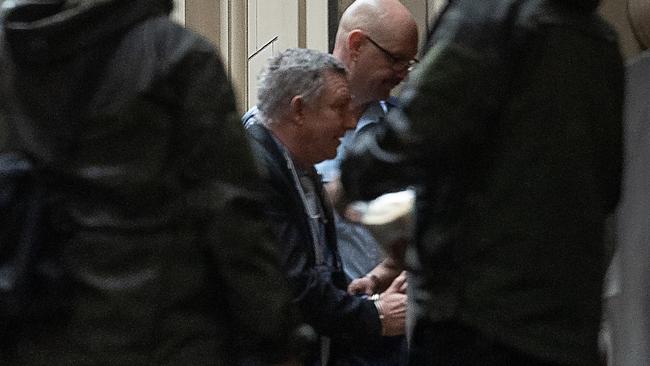
Russell Hill, 74, and Carol Clay, 73, disappeared on March 20, 2020, from their campsite on
the Dry River Track in the remote Wonnangatta Valley in Victoria’s High Country.
The white LandCruiser they had travelled in together sat abandoned with scorch marks down its side, and their campsite – its tent, gas bottles, solar panels and fold-out chairs – had been razed by fire. All that remained was the small blue tent that concealed the couple’s portable toilet.
Clay and Hill, who was married to another woman, were childhood friends; they’d been romantically linked in their younger years. The pair had been having an extramarital affair and Clay had on several occasions accompanied Hill on camping trips to the High Country. At first glance to investigators, it seemed they might simply have started a new life together, elsewhere. But the police soon became convinced that Clay and Hill had been the victims of foul play – even though their bodies had not been found.
In April 2020, officers from Victoria Police’s Missing Persons Unit took over the case and established Operation Lexicon to investigate the disappearance and suspected killing of the couple. By July, officers had identified a fellow camper as a person of interest. Of all the people in the Wonnangatta Valley at the time, the most likely suspect was senior Jetstar pilot Greg Lynn. Police discovered inconsistencies in his reported whereabouts, and linked his vehicle to Hill’s phone using data retrieved from mobile phone towers. And there was also Lynn’s Nissan Patrol; previously navy blue, it had been repainted tan in what he described to police as a “lockdown project”. But police didn’t have enough evidence to charge him at first. What the investigation desperately needed was surveillance.
Melbourne was in pandemic lockdown. GregLynn, his wife Melanie and their children were still housebound in Caroline Springs, a leafy suburb on Melbourne’s fringe. If that annoyed and frustrated the family, it was worse for Victoria Police’s Missing Persons Squad.
Normally, after being granted warrants to covertly install surveillance equipment, they would spend a few days monitoring the patterns of the household and identify an hour or two when they could be reasonably certain no one was in the house. A specialised team would quickly enter and install tiny devices through ceiling cavities and wall cavities. The tips of these devices, each no bigger than a pin, were almost invisible to the naked eye and would sit flush with the wall or the ceiling, having just penetrated the surface.
The devices were connected to a scan detector. Finally, everything had to be hardwired into the powerboard of the house. It was delicate, highly technical work that required time to execute properly. Time alone in the house. But how could they install all this equipment at Lynn’s place when no one was leaving the house, and his son was staying up all night playing video games?
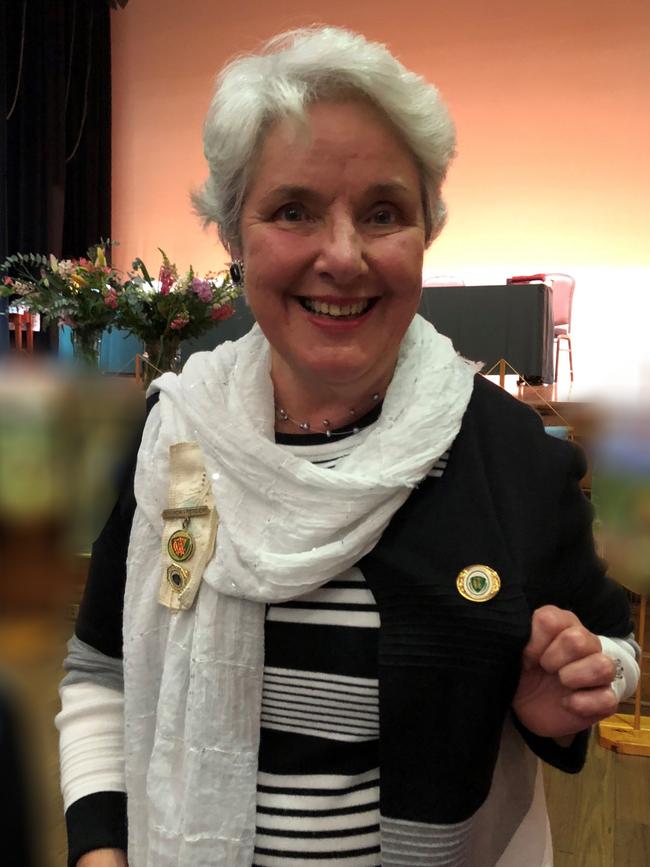
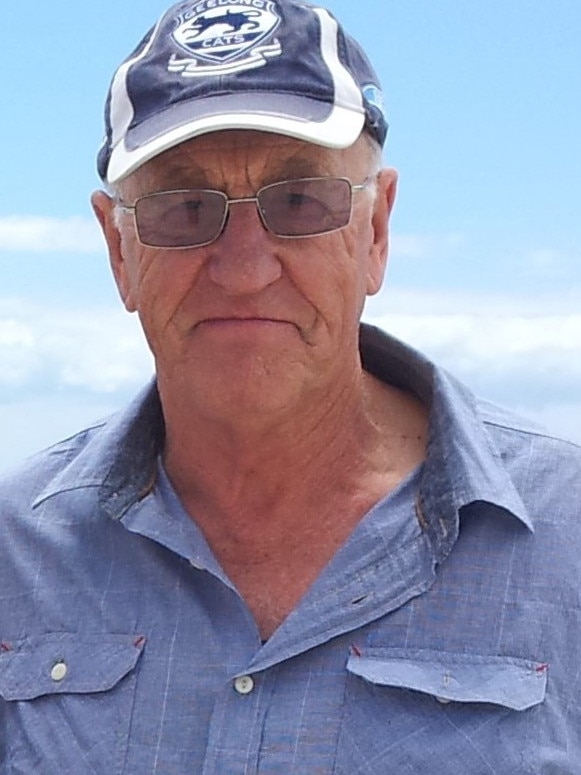
The telephone intercept on Lynn’s mobile wasn’t a problem, and putting trackers and surveillance equipment in his car was manageable. A bit risky – but manageable.
Days passed. Weeks. The police technicians had a couple of false starts and near misses. Sometimes Lynn and his wife went to the supermarket together and the kids might kick a football in the park for a while, but predicting when those moments would be and for how long the house would be empty was impossible.
The members of the household began new hobbies and projects to mitigate the boredom of lockdown. Lynn bought a beehive. Couriers would appear and drop parcels off at all hours. Time and again, the risk of being caught outweighed the likelihood of success, so the mission was abandoned. Yet if police couldn’t get surveillance installed in the house, they had little chance of collecting any further evidence.
So a discreet inquiry was made to test the patience of the Supreme Court: given the extraordinary circumstances created by Covid-19, would the court consider extending the warrants just this once without further evidence? The answer: no, it wouldn’t.
If the police couldn’t get the warrants extended, that would very likely kill any chance of bringing the investigation to a successful conclusion. Yes, they could always arrest Lynn anyway and drag him in for questioning, but where would that get them? The interview would probably go something like this:
Were you at Buck’s Camp on the evening of Friday, March 20?
Um … no.
Did you try to leave in the middle of the night and have to turn around and come out the other way? Is that why your headlights are on when you were photographed by the Mount Hotham road cameras?
No.
Well, we think you’re lying.
Prove it.
That would have achieved nothing while also making Lynn aware he was the focus of the investigation – reducing any chance of catching him in an inadvertent slip-up to almost zero.
Even when the second lockdown finally ended, the situation didn’t really improve.
Jetstar still wasn’t planning to be back in the air for another two or three months. Lynn and his wife remained off work, and none of the kids were at school. They were still all at home.
The only option, the last resort, was a “hot install” – covertly installing the surveillance equipment in the house in the dead of night while people were in it. If it went wrong, Lynn would know he was a prime suspect and it would be game over. But if they did nothing it was going to be game over anyway, so they might as well try.
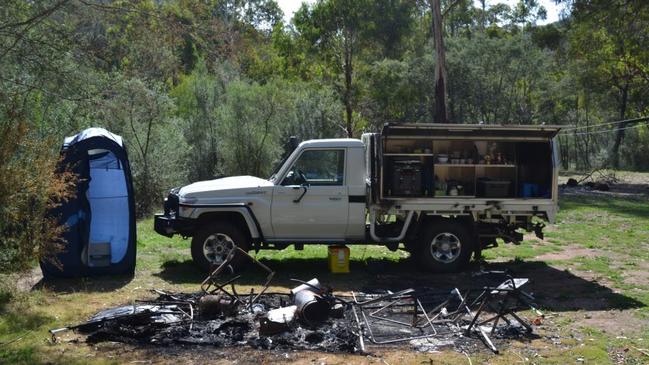
Also, the weapons check on Lynn had shown he was the registered owner of seven firearms. A couple of shotguns, a few rifles and a couple of handguns. Where were those weapons? Did he keep one of the handguns in his bedroom? That didn’t bear thinking about.
They assembled the special team from a small group of highly trained professionals.
The consequences of failure might be deadly; but weighed against that, if the hot install could be completed successfully, the potential benefit to the investigation was huge. If they wanted a shot at apprehending a man who was under suspicion of killing a couple only hours after meeting them, for totally unknown reasons, there was no alternative.
With a mere two weeks left on the time frame for the surveillance warrants, the night was chosen. All the rehearsals and preparation had been completed and at last the operation was formally approved. At Missing Persons HQ, all they could do was bite their nails as they prepared to monitor progress from afar.
At around 1am a dark HiAce glided into Caroline Springs and pulled up opposite the target house. Three fit men slipped out the rear door and walked quietly across the road. Two held small carry-bags, while the third gripped a Bogota rake (a type of lock pick) and a tension wrench, instruments that the team used to neutralise the deadlock on the front door swiftly and silently.
Once inside they worked quickly, precisely and in complete silence in the rooms and the roof cavity while the house’s occupants slept. All except Lynn’s son, who was still on his PlayStation. The real danger was disturbing the boy.
At 3.37am a signal from the living room appeared on the screens of the Comms monitoring room at Missing Persons HQ. Then another from the dining room. Then one from the kitchen … and finally, an excruciating seven-and-a-half minutes later, from the main bedroom. It was all done and the team was out before 4am.
At last the team had a small window through which they could observe Greg Lynn’s life. With his house, car and phone bugged, they would be able to see and hear anyone he confided his secrets to. Who his closest friends were. Whose company he sought the most. Who he talked to when he needed to talk.
But in the strange world of the pandemic, all the usual social interactions were suspended. The team also knew that because it had taken so long to install the surveillance devices, the time-frame in which they could be legally used might expire before they could yield meaningful information.
The days stagnated. Even as pubs and restaurants tentatively reopened, with masks and sanitiser and QR codes everywhere, the Lynn family spent hours alone, bored and frustrated with each other’s company.
Lynn immersed himself in learning how to be a beekeeper. There were several steps he had to follow to set up his new hives properly, but if there was one thing he was damn good at, it was following a list. He wrote checklists every day. His intended movements, actions and even conversations were put down in order; he would spend the day executing the list he’d made for himself.
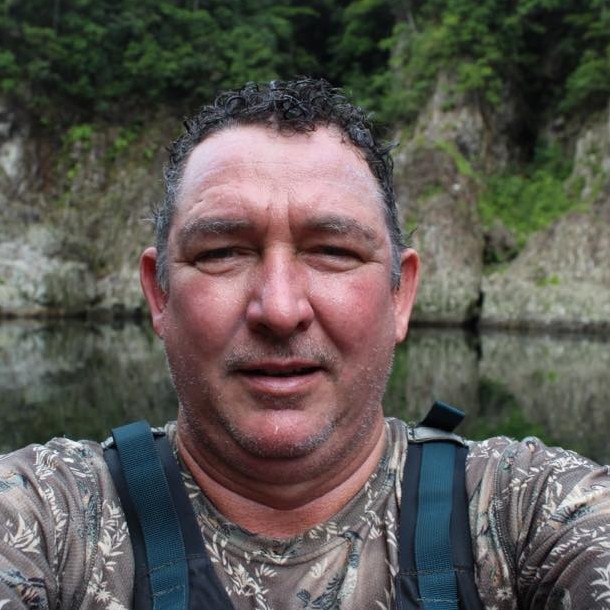
As the team settled into the business of watching Lynn and tracking his movements, trying to identify his closest friends, the patterns of his life started revealing the next big surprise. Greg Lynn didn’t have any friends. Sure, he had superficial chats with his wife about the weather and what was on the telly that night. He might have a hail-fellow-well-met yarn with a neighbour about the footy or whether premier Dan Andrews was an idiot or a genius. But in terms of real conversation – about how he was feeling or what was concerning him – he didn’t talk about that sort of stuff at all. Except, they began to realise, to himself.
At home, Lynn was always in control. He would set out what the plan was for the day. Or the week. He would stick to his checklist and make sure everyone else stuck to theirs as well. No wonder he was a good check pilot. But when he was on his own, whether at home or in his car, his control dropped and he would mutter, cajole, comment, argue and rant to himself.
Let’s see if the cops turn up, he suddenly said on one occasion. If they do, we know they can put a tracker on it. Who decides what’s right and wrong? That’s the thing. Judgement. Judge does. The law does. The community does.
A few days later: Ballistics, you’d think they’d want samples of my ammo, you would.
They were also hearing a person who was emotionally volatile and capable of sudden rages: at something a DJ said on the radio, at slow service in a cafe, at a barking dog, at a broken washing machine.
Somehow the investigators had to ramp things up. They sent out a press release about the status of the investigation. It was short, saying little more than that progress was being made. They hoped they would soon be in a position to say something more concrete. It made Triple M’s 11am news – which, by chance, Lynn was listening to in his car. In the Comms room, the team heard him say: They’ve just got to keep pushing all the time, don’t they. I put a f. king trigger lock on it. You’ve gotta get a second set of trigger lock f. king keys and stick them in there.
The team were increasingly confident they had the right man in their sights. For whatever reason – and they were beginning to think he didn’t need much of a reason – Greg Lynn had caused fatal harm to Russell Hill and Carol Clay on that black night in March.
Greg Lynn was arrested and charged in November 2021 with the murders of Russell Hill and Carol Clay. In June this year, a jury in Victoria’s Supreme Court found him guilty of murdering Carol Clay, but not guilty of the murder of Russell Hill. On October 18, he was sentenced to 32 years in prison. Lynn has indicated he intends to appeal the verdict.
This is an edited extract from In the Dead of Night: A Mysterious Disappearance, a Brazen Murderer and the Police Who Hunted Him Down by Greg Haddrick (Allen & Unwin), out on October 29.
